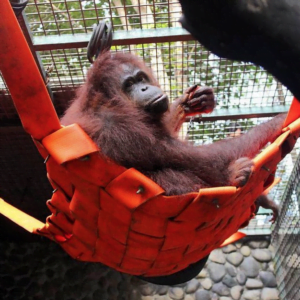Ethical Animal Volunteering has a positive impact on the wildlife and domesticated animal community. It can improve the quality of…

Why Pay to Volunteer Abroad? Understanding Your Fees and Choosing Ethical Programs
Quick summary:
- Volunteer fees cover essential costs: Your payment ensures your accommodation, meals, staff support, and directly funds animal care, rehabilitation, and core conservation operations, which grassroots charities rely on.
- Distinguish between voluntourism and genuine charities: Opt for nonprofit organisations that channel fees directly into conservation, rather than for-profit companies with high overheads and advertising costs.
- Vet programs carefully: Prioritise ethical practices like no direct animal contact, legitimate rescues, transparency in finances, local community involvement, and clear allocation of your fees.
Why pay to volunteer: Understanding the Realities of Wildlife Volunteering
Dreaming of making a difference volunteering with animals or in conservation abroad? Many of our potential volunteers are often surprised to learn that paying a fee is a necessary part of the experience. It may seem strange, as volunteering is traditionally described as freely giving your time and energy to help others, the community, or the environment. It’s always unpaid and done by personal choice. So, why should you pay to volunteer? Actually, the truth is, behind every impactful volunteer program are significant operational expenses. It’s crucial to understand the ethics, conservation aspects, and the realities of wildlife volunteering to make an informed decision.
Volunteering vs. Voluntourism: What’s the Difference?
Wildlife volunteering and voluntourism often get mixed up, but they serve different purposes. Voluntourism caters to tourists seeking a blend of vacation and volunteering, often providing all-inclusive experiences with a focus on enjoyment rather than meaningful contribution. On the other hand, genuine wildlife volunteering is about offering your time, skills, or resources to aid animal conservation efforts.
When you search for “wildlife volunteering,” you will encounter two primary types of opportunities:
1. Voluntourism Providers
Also known as third-party companies, they connect volunteers to animal conservation projects. They offer a business model that combines volunteering with tourism activities, targeting mainly Westerners. It’s essential to research these providers and ensure that they are not exploiting wildlife for profit.
2. Genuine Charities
These are organisations that focus solely on animal conservation. They might ask volunteers to pay fees, but these funds are funnelled back into the project to support the animals in their care and the related operations and conservation work.
For these grassroots projects, hosting volunteers presents challenges, from coordinating logistics and managing paperwork to providing accommodation, transport, and ongoing training. Yet, volunteers bring invaluable skills, dedication, and vital financial contributions. Without a stable income source, no charity can survive.
 Here’s what your fees typically cover:
Here’s what your fees typically cover:
-Accommodation, food, and housekeeping: Providing a safe and comfortable stay for volunteers is a top priority for these organisations. This includes meals, cleaning services, and emergency support, all of which come at a cost.
-Transport: Reliable and safe transport to and from the project site is usually included in the fees.
-Safety and security: Training, supervision, and safety measures require resources and personnel.
-Personal support from onsite staff who manage volunteer logistics and your well-being. Often they act as your mentors to help with personal issues or your studies if you are doing an academic project.
-Long-term project support: Crucially, a large part of your payment directly supports the organisation’s mission. For animal care, this means food, enclosure maintenance, vet supplies and clinic, rehabilitation, and staff salaries. Without volunteer contributions, these vital operations couldn’t help as many animals or protect as much habitat.
Our own Malaysian Wildlife program is unique, as it is a non-profit that aims to support impactful and ethical conservation projects in Malaysia and beyond. Practically, our organisational costs involve identifying and vetting ethical and meaningful projects, coordinating with local communities, and ensuring no exploitation is involved. This is in addition to our regular operational costs, which are generally to relieve the burden on the local team, who are focused on conservation first and then hosting volunteers or interns. For example,
- Coordinating with volunteers over emails, checking qualifications and timeframes
- Managing paperwork for visas and insurance
- Organising accommodation and meals for volunteers
- Arranging transport, providing directions, and other helpful travel tips.
- Preparing new volunteers regularly through face-to-face chats and personal support
- Managing interpersonal dynamics with new people consistently
- Ensuring volunteers are adhering to guidelines and not causing problems
- Obtaining volunteer feedback and sharing this with the project to achieve improvements
The positive Impact of Your Wildlife Volunteering
Your contribution to wildlife volunteering, whether through skills, dedication, or financial support, can make a real difference. Here’s how:
- Supporting Conservation Efforts: Your fees help fund essential conservation work, including research, animal care, and community outreach.
- Providing Financial Stability: Most conservation projects rely heavily on volunteer funding. Your financial contribution can help secure the project’s future.
- Building Your Skills: Volunteering provides a unique opportunity to gain new skills, especially if you’re considering a career in wildlife conservation.
Our price promise to you
As a nonprofit, we avoid commercial voluntourism’s high overheads. Our fair pricing directly benefits conservation projects. We proudly Price Match any lower online price you find for the same project, activity, and duration (excluding special promotions). Choose us to ensure your investment makes the biggest possible difference.
Use our Ethical Wildlife Volunteering Checklist
Before committing, ensure the program is ethical and impactful:
- Animal Welfare: Does the organisation prioritise animal well-being over tourist interaction, strictly avoiding direct contact with wild animals?
- Legitimacy: Are animals genuinely rescued, not bred for exploitation, focusing on rehabilitation/release or lifelong naturalistic care?
- Transparency: Is the organisation clear about its mission, fee usage, goals, and affiliations (e.g., registered NGO, reputable funding)?
- Community & Data: Does it involve local communities and use collected data for meaningful conservation?
- Fees & Fit: Is fee allocation clear? Can you contact past volunteers? Do the commitment and your skills align with the project’s needs?
A Final Thought
Wildlife volunteering is more than just an adventure. It’s about contributing to a cause you believe in. Yes, it might involve paying a fee, but remember, your fees are an investment in the future of wildlife conservation. Whether you’re providing skilled labour, financial support, or dedication, your contribution is making a difference. And that’s something truly worth paying for.
Have further questions about wildlife volunteering? Feel free to contact us or check out our volunteer opportunities page.





